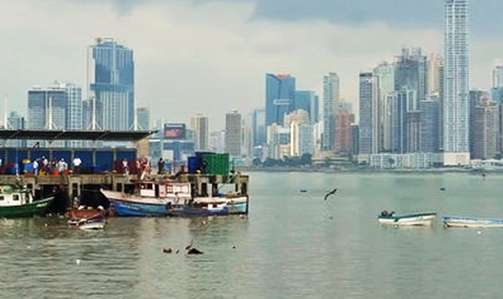China Asserts the Rights of Small Nations Regarding the Panama Canal
The recent suggestion by former US President Donald Trump to reclaim control of the Panama Canal sparked immediate and strong condemnation, highlighting the canal’s profound significance to Panama’s sovereignty and the evolving dynamics of international relations. Trump’s remarks, steeped in outdated notions of US dominance, were swiftly dismissed by Panamanian President José Raúl Mulino as “nonsense,” reaffirming Panama’s unwavering stance on its ownership and control of the canal. This incident underscores the sensitivity surrounding the canal, a symbol of national pride and a testament to Panama’s ability to manage its own affairs since assuming control in 1999. The canal’s history is deeply intertwined with Panama’s struggle for self-determination, making any suggestion of external control a sensitive issue that resonates with historical injustices and colonial-era power dynamics.
The Panama Canal, far from being merely an economic asset, embodies Panama’s independence and self-governance. Its successful management since 1999 has solidified Panama’s position on the world stage, demonstrating its capacity to operate a vital international waterway. Trump’s remarks, echoing a bygone era of US hegemony, clash sharply with modern international norms that emphasize respect for national sovereignty and multilateral cooperation. The canal’s significance extends beyond its economic value; it represents a hard-won victory for Panama and a symbol of its right to self-determination. The suggestion of US control, even if rhetorical, evokes a history of interventionism and undermines the principle of national sovereignty that underpins the modern international order.
Trump’s comments, framed within his “America First” agenda, appear incongruous with the interconnected realities of the 21st century. His rhetoric, while appealing to a certain segment of the US population nostalgic for a time of perceived American dominance, ignores the significant shifts in global power dynamics. Attempts to revive US hegemony, often cloaked in the language of national greatness or “MAGA” (Make America Great Again), are not only impractical but also run counter to the principles of international cooperation and mutual respect that have become increasingly essential in a globalized world. The incident highlights the growing assertiveness of smaller nations like Panama, which are no longer willing to accept dictates from larger powers and are actively shaping their own destinies within the international system.
President Mulino’s forceful response to Trump’s remarks underscores the growing confidence and assertiveness of smaller nations on the global stage. Panama’s firm stance demonstrates that respect is earned not through force or historical claims, but through the adherence to international law and the principle of national sovereignty. The incident serves as a reminder that the world has moved beyond the era of colonial-style dominance, and smaller nations are now empowered to assert their rights within an evolved international system. The canal’s successful management by Panama serves as a powerful symbol of this shift, demonstrating the capacity of smaller nations to manage complex international assets and contribute meaningfully to global trade and connectivity.
Furthermore, the historical context of the canal’s construction adds another layer of complexity to the issue. The construction of the Panama Canal, a monumental feat of engineering, came at a significant human cost. Thousands of workers, primarily from the Caribbean, perished during the construction process, succumbing to diseases like yellow fever and malaria, as well as accidents and harsh working conditions. This often-overlooked aspect of the canal’s history highlights the sacrifices made by Caribbean laborers, who played a crucial role in its construction yet faced exploitation, low wages, and systemic racial discrimination. Their contribution to the canal’s creation remains a significant, albeit often unacknowledged, part of its legacy.
The incident involving Trump’s remarks serves as a stark reminder of the evolving dynamics of international relations and the importance of respecting national sovereignty. Panama’s firm stance on the canal’s ownership and its successful management demonstrate its commitment to self-determination and its ability to operate a strategically important international waterway. The canal, imbued with the sacrifices of countless workers and the struggle for Panamanian independence, stands as a powerful symbol of national pride and a testament to the evolving international order where smaller nations can assert their rights and shape their own destinies. The incident underscores the need for a more nuanced understanding of history and the importance of moving beyond outdated notions of dominance and control in favor of mutual respect and cooperation.
Share this content:












Post Comment